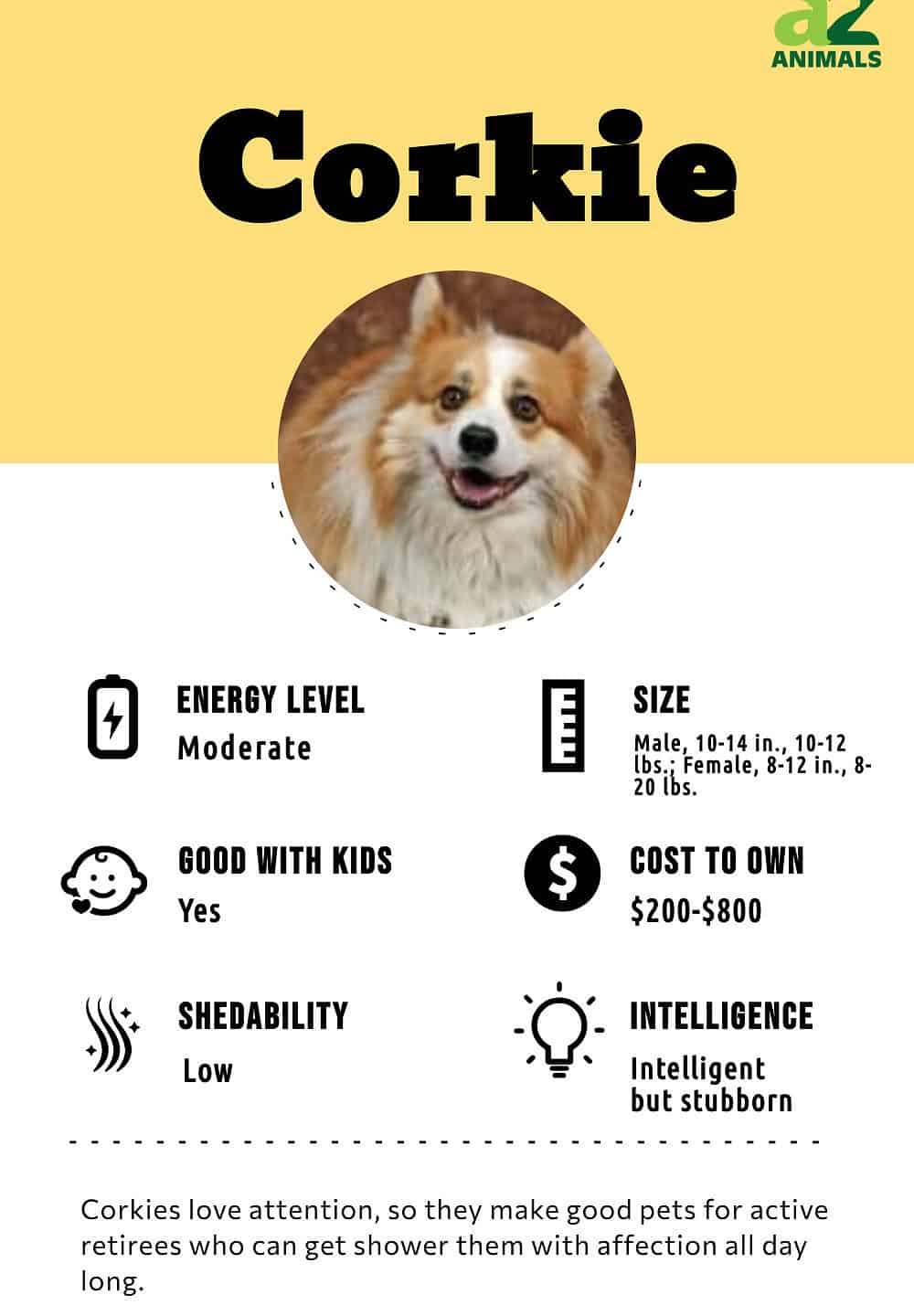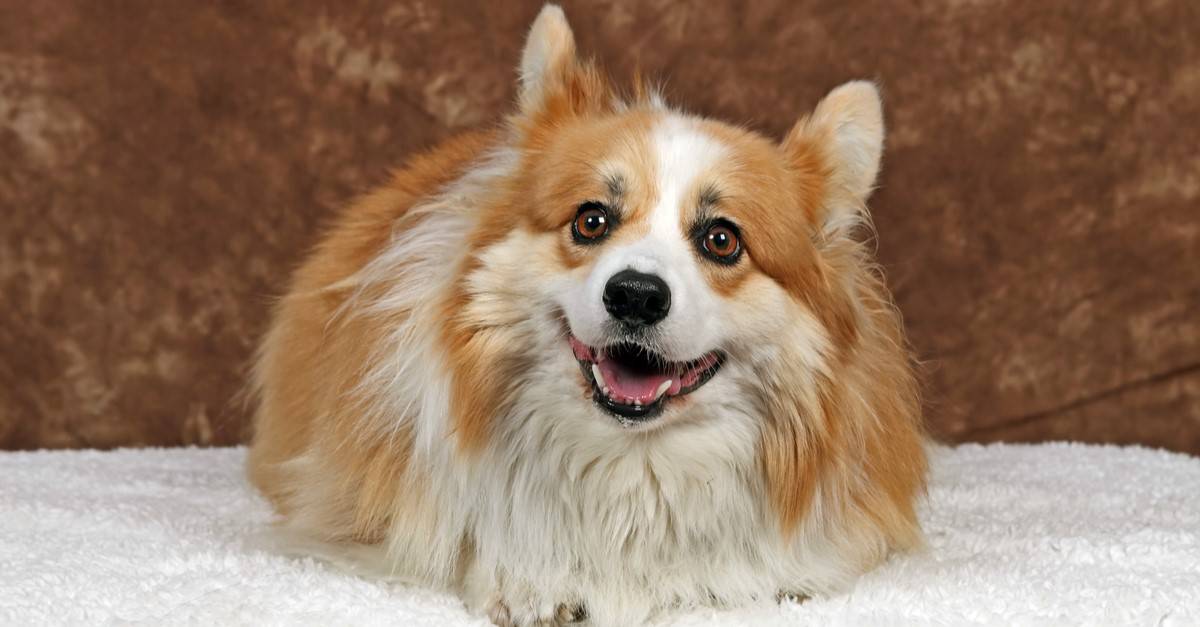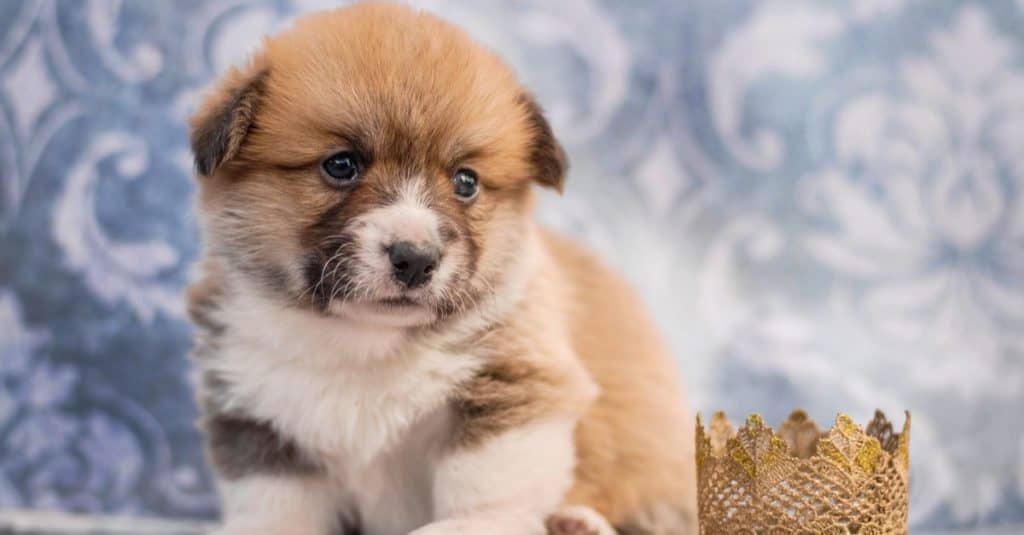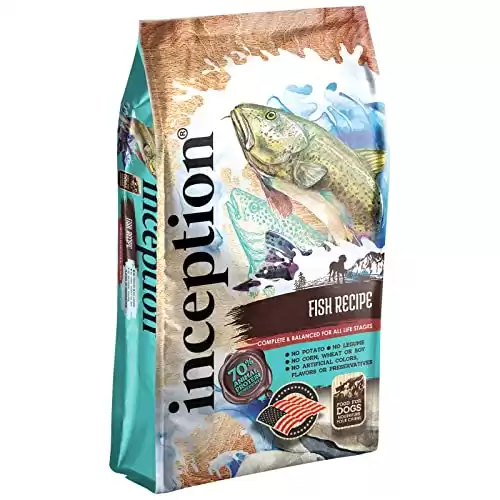Corkie
Canis lupus
One of the Corkie’s parent breeds, the Cocker Spaniel, was thought to have come over on the Mayflower.
Advertisement
Corkie Scientific Classification
- Kingdom
- Animalia
- Phylum
- Chordata
- Class
- Mammalia
- Order
- Carnivora
- Family
- Canidae
- Genus
- Canis
- Scientific Name
- Canis lupus
Read our Complete Guide to Classification of Animals.
Corkie Conservation Status
Corkie Facts
- Fun Fact
- One of the Corkie’s parent breeds, the Cocker Spaniel, was thought to have come over on the Mayflower.
- Temperament
- Friendly, intelligent, and sensitive
- Diet
- Omnivore
Corkie as a Pet:
- General Health
- Energy Level
- Shedability
- Trainability
- Intelligence
- Tendency to Chew
- Size
- Family and kid friendliness
- Yappiness / Barking
- Moderate
- Separation Anxiety
- Moderate
- Preferred Temperature
- Average climate
- Exercise Needs
- Moderate
- Friendly With Other Dogs
- High
- Pure bred cost to own
- $200 to $800
- Dog group
- Non-sporting
- Male weight
- 10-20 lbs
- Female weight
- 8-20 lbs
This post may contain affiliate links to our partners like Chewy, Amazon, and others. Purchasing through these helps us further the A-Z Animals mission to educate about the world's species.
View all of the Corkie images!
The Corkie’s Cocker Spaniel ancestor came to America aboard the Mayflower. It later became a uniquely American breed.

The Corkie is a mixed breed dog that combines elements of the popular Cocker Spaniel (the American Cocker Spaniel in particular) and the Yorkshire Terrier. The technical term for a cross between two purebred parents is a “designer dog.” The Cocker Spaniel is an active and alert hunting dog, originally bred to hunt woodcocks. Today, it is primarily intended to be a companion dog. The Yorkshire Terrier was originally bred as a vermin hunter, but over time this elegant-looking, long-haired breed became a popular lapdog of the British upper class and later a lovable companion for all types of people.
See all of our expert product reviews.
As a hybrid dog, there is no Corkie standard. That means its appearance and personality may vary slightly from one dog to another, even among closely related family members. But in general, this is a small dog with either erect or droopy ears and long, dense fur that comes in several varieties, including black and tan, black and brown, and black and white. The Corkie should appeal to owners who want a friendly and upbeat companion.
3 Pros and Cons of Ownership
| Pros | Cons |
|---|---|
| Sociable The Corkie likes to interact with people. | Stubborn The Corkie has a stubborn streak that may interfere with any attempt to train it. |
| Eager to Please The Corkie wants nothing more than to please its owner. | Sensitive This dog needs to be treated very gently. |
| Laid Back This dog knows how to relax and settle down. | Lazy This dog has the tendency to become lazy and indolent if not given enough exercise. |
Size and Weight
| Height (Male) | 10 to 14 inches |
| Height (Female) | 8 to 12 inches |
| Weight (Male) | 10 to 20 pounds |
| Weight (Female) | 8 to 20 pounds |
The Corkie is a small dog with a thin frame, so owners should treat this dog with care.
Common Health Issues
The Corkie is a healthy dog with a solid lifespan of 11 to 15 years, but owners should be aware of several health problems that can develop. Based on the health profile of its two parent breeds, the Corkie is prone to cataracts, dermatitis, allergies, hypothyroidism, epilepsy, reverse sneezing, and an eye condition in which the lower lid may be turned inward or outward.
The Corkie, like many other small breeds, may also be prone to an inheritable disorder called patellar luxation: a chronic dislocating kneecap that could cause serious mobility problems. Another potential condition is retinal dysplasia, meaning the abnormal development of the retina in the eye, which causes visual problems.
Finally, cancer is one of the leading causes of death in older dogs. A good breeder will try to minimize the risk of many genetic conditions (or any other conditions with a genetic component), but it’s a good idea to get regular checkups and tests at the vet just to be sure. In summation, these are the most common health problems:
Health and Entertainment for your Corkie
See all of our expert product reviews.
- Allergies
- Reverse Sneezing
- Cataracts and other eye problems
- Cancer
- Hypothyroidism

A Corkie is a fun, affectionate family dog with a big, charming personality.
©Jim Nelson/Shutterstock.com
Temperament
As a cross-breed dog, each individual Corkie may be slightly different in personality and temperament, even within the same litter. But in general, the Corkie should be a fun, affectionate family dog with a big, charming personality. It will, of course, need regular exercise, or else it might become lazy, bored, and anxious while developing behavioral problems. But as long as it receives enough care and attention, the Corkie is a good-natured, well-behaved dog with many appealing traits. It is an excellent companion that form strong bonds with its owner.
Care
The Corkie is a medium maintenance dog that requires some dedication and effort on the part of the owner, but that does not necessarily mean it is only intended for experienced owners. With enough time and attention, even novice and first-time owners can get the hang of caring for this dog’s needs. The most difficult thing to deal with is the dog’s stubborn streak. Owners should be aware that training does require some patience and effort to overcome the dog’s stubbornness. If you have any other questions or concerns about the dog’s maintenance and care, then you should consult with your vet.
Best Dog Food
Due to this dog’s tendency for inactivity and obesity, owners should carefully control the amount of calories it’s eating. The Corkie should be fed around 2 cups of high-quality dog food every day, although the exact amount may vary based on its size, age, and activity level.
Since many Corkies suffer from allergies, look for alternative protein, limited-ingredient, or allergy-friendly dog food to eliminate ingredients your dog is sensitive to.
At A-Z Animals, we think the best dog food for Corkies is Inception Dry Dog Food – Complete and Balanced Dog Food – Meat First Legume Free Dry Dog Food.
We like that this food excludes potato, legume, corn, wheat, soy, artificial colors, artificial flavors and preservatives from your Corkie’s diet. Instead, you’ll find mostly ocean whitefish and catfish for wholesome protein, Omegas that support the immune system, and supplemental L-Carnitine and Taurine for the heart and clear eyes.
Check Chewy or Amazon for this product.
- INCEPTION IS PROTEIN FIRST – Inception is formulated with animal protein first to serve your canine companions’ needs. We understand your canine companions are carnivore first, omnivore second and thrive with good animal protein in their diets. At Inception, we ensure our first two ingredients are animal protein.
- INCEPTION CHICKEN FORMULA - Our Inception Chicken recipe contains chicken and chicken meal as the first two ingredients. Chicken is an excellent source of lean protein providing high-quality, essential amino acids, and trace minerals. Chicken is a “protein-dense” ingredient, meaning that it provides a lot of protein compared to fat in a given amount of meat. This makes it an excellent source of protein that may help in weight control because fat contains more calories than protein. Chicken is high in vitamin B3, vitamin B6 and vitamin B5. It’s also a great source of selenium and phosphorus.
- INCEPTION IS LEGUME FREE – Inception formulas are free of legumes, potatoes, corn, wheat, soy, artificial colors, flavors, and preservatives. We want to give your canine companions everything they need for a long and happy life with you.
Maintenance and Grooming
Despite its tendency not to shed very much, the Corkie has medium to high grooming requirements. The long, luxurious coat needs to be brushed every single day with a bristle brush and metal comb to prevent matting (followed by a slicker brush for finishing). Tangles should be worked out by hand so you don’t damage the coat. This should be combined with regular clipping every four to six months, done by either yourself or a professional groomer. Proper dental hygiene can be maintained with regular tooth brushings a few times a week. Clean the ears with cotton about once a week to prevent obstructions and wax buildup. Trim the nails with a clipper every so often to keep them in proper shape. Finally, baths should be given whenever your dog becomes particularly dirty.
Training
The Corkie is a fairly intelligent dog that should grasp human commands quickly, but there are two important caveats that owners need to understand. First, this dog has a stubborn streak and a mind of its own; this may cause it to sometimes ignore its owner’s commands. Second, the Corkie has a rather sensitive and gentle nature that needs to be handled with care. Both of these traits can reinforce each other in bad ways to produce an unpleasant training experience.
Owners will therefore need to exercise extreme caution when dealing with this dog. Positive reinforcements work best; do not raise your voice or treat the dog negatively. If you are struggling to come up with an effective routine, then you might want to take your dog to a professional trainer.
Exercise
The Corkie needs only about 45 to 60 minutes of exercise every day, preferably in the form of long walks, fetching, and general playtime. If the Corkie doesn’t receive enough exercise, then it may indulge in some bad habits such as laziness and destructive behavior. A fenced yard is recommended to give it enough space to run around in as long as you don’t leave the dog unattended for long periods of time.
Puppies

Corkie puppies need socialization and training from the beginning to help them develop into well-behaved and friendly adult dogs.
©Oksamutnaya/Shutterstock.com
Prospective owners need to be particularly careful about where they buy a puppy. Low-quality breeders and puppy mills, while generally cheaper, also have a tendency to produce puppies with more health problems. Instead, you should try to find a high-quality breeder in your area with a strong reputation for healthy dogs. It’s always a good idea to ask the breeder for proof of the dog’s health tests just to be sure. After bringing your puppy home, early socialization and training should help it develop into a well-behaved and friendly adult. Owners should try to introduce it to as many new people, dogs, and situations as possible.
Children
Despite their small size, Corkies should have a natural love of children. They want to indulge in adventure time with the entire family. However, adults should supervise all interactions with smaller children. Although the Corkie can tolerate a lot of rough play, it might respond poorly if treated harshly by kids.
Similar Dog
Besides the Cocker Spaniel and the Yorkshire Terrier, the Corkie bears a strong resemblance to the following purebred and cross breed dogs:
- Cavalier King Charles Spaniel – The King Charles is a small but well-mannered, congenial breed with an athletic build, intelligent mind, and noble bearing. It is an overall spunky, fun-loving, gentle, and affectionate companion.
- Scottish Cocker – A crossbreed between a Scottish Terrier and a Cocker Spaniel, the Scottish Cocker is a friendly and affectionate dog with a silky and slightly wavy coat of varying lengths. Black, white, and brown are the most common colors. Its temperament is slightly toward the fiery rather than the mellow side.
- Cairicocker – A cross between a Cairn Terrier and a Cocker Spaniel, the Cairicocker is a small but scrappy dog with wavy hair ranging from short to long in length. These are also excellent companions for the entire family.
Famous Corkies
The Corkie is still too new and obscure of a mixed breed dog to have much of a following, but its two parent breeds, the Yorkshire Terrier and Cocker Spaniel, are some of the most popular dogs in the United States. They are particularly common on the dog show circuit.
Popular Names
If you are looking for a good Corkie name, then you might want to consider one of the following options:
- Charlie
- Max
- Bella
- Buddy
- Daisy
- Cooper
- Lily
- Luna
- Tucker
- Lucy
Corkie FAQs (Frequently Asked Questions)
What is a Corkie?
The Corkie is a mixed breed hybrid that combines aspects of a Cocker Spaniel and a Yorkshire Terrier. It’s a friendly, laid back, and eager to please dog that should make an excellent companion. Physically, this dog has a small body shape with long and dense fur of varying colors and markings.
What is the price of a Corkie?
The Corkie is actually much more affordable than the typical dog; the price is around $200 to $800 on average. Obviously, if the dog has a stronger pedigree, then it will end up costing more. But if you choose to adopt a Corkie instead, then you should be paying a much cheaper price.
Do Corkies shed?
The Corkie does not shed much at all. If you don’t want to deal with a lot of loose hair, then this may be a good choice for you.
Are Corkies hypoallergenic?
No, the Corkie is not a hypoallergenic dog. Despite being only a light shedder, owners with serious allergies might be taking a slight risk with the Corkie.
What does a Corkie look like?
The Corkie is a small dog, measuring no more than 14 inches at the shoulders, with a short muzzle, droopy or erect ears, and a fairly slim physique. The long and straight hair has a silky quality to it, and there are many different color and marking combinations, involving black, white, cream, silver, brown, sable, red, and blue.
Thank you for reading! Have some feedback for us? Contact the AZ Animals editorial team.
Sources
- Wag Walking, Available here: https://wagwalking.com/breed/corkie
- Doggie Designer, Available here: https://doggiedesigner.com/corkie/


















